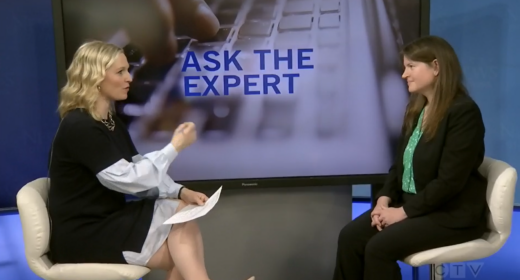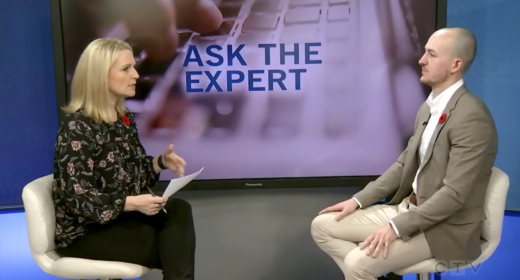As a result of the amendments to the Statutory Accident Benefits Schedule ("Schedule"), under Ontario's Insurance Act, the legislature has redefined the entitlement criteria for attendant care, housekeeping and home maintenance, and caregiver benefits. To qualify for each of these benefit categories, the insured must have incurred the expense.
For the first time, the Schedule defines "incurred expense" to mean that: the insured had received the goods or services; the insured had paid for, or promised to pay for the goods or services; and, the person providing the goods or services had done so in the ordinary course of employment, or, the person had sustained an "economic loss as a result of providing the services."
Significantly, "economic loss" is not defined by the Schedule.
Since 2010, the plaintiff and defence bar have sought clarification from both the Ontario Superior Court of Justice (Court) and the Financial Services Commission of Ontario (FSCO) on the interpretation and application of “economic loss” to various circumstances.
There are two recent decisions, Henry v. Gore Mutual Insurance Company ("Henry") and Simser v. Aviva Canada Inc. ("Simser") on point. These decisions highlight two central questions: How should the insurer quantify the benefit? What evidence will satisfy the definition of "economic loss?"
In May 2012, Justice Timothy Ray released Henry. The parties in this case did not dispute that the insured's mother had sustained an economic loss as a result of providing attendant care services to the insured. The insurer had, in fact, paid the benefit. At issue was how the insurer had quantified the attendant care benefit. The quantum of attendant care services had been assessed at $9,500.00/month, which exceeded the maximum legislated rate of $6,000.00/month. Instead of paying the maximum amount prescribed by Form 1: Assessment of Attendant Care Needs ("Form 1"), being $6,000.00/month, the insurer calculated the monthly rate on a pro-rated basis taking into account the total number of hours lost from work, and maximum hourly rates permitted by the Schedule. These calculations resulted in a lower monthly rate payable to the service provider of $2,117.40/month.
Justice Ray held that the amount payable was the Form 1 rate, and that the approach taken by the insurer was not in compliance with the Schedule. In other words, once the economic loss has been sustained, the Form 1 rates are payable.
A slightly different question was being considered by the FSCO in Simser at the time Henry was released. James Brown, a partner with Nelligan O'Brien Payne LLP, and Ashley Deathe, an associate with the firm, represented the insurer at the arbitration.
In this case, the insured claimed to have incurred expenses for attendant care and housekeeping and home maintenance services provided by two of his relatives. In addition, he claimed to have incurred expenses for housekeeping and home maintenance benefits for services of a lawn care company. Neither of the insured's relatives were professional service providers, whereas the insured claimed the lawn care company was providing professional services.
The insurer disputed whether the insured's relatives had, in fact, sustained an economic loss as a result of providing the services. Moreover, the insurer disputed that the lawn care company was a professional organization.
Despite repeated requests for supporting documentation during the adjustment phase, the insured failed to provide evidence of his relatives' economic loss or support for his assertion that the lawn care company was a professional organization. The parties proceeded to arbitration in July, 2013. The insured argued that his non-professional service providers did not need to provide evidence of a monetary or financial loss, and that it was sufficient to show that they had spent time traveling to his house and providing him attendant care services. A representative of the lawn care company was not called to testify.
In February 2013, Arbitrator Edward Lee issued his decision in Simser, affirming the insurer's interpretation of "economic loss" as meaning a financial or monetary loss. In so doing, he rejected the opinion evidence from Professor Jack Carr, the insured's expert economist, who asserted that the term "economic loss" envelopes the concept of a "loss of opportunity." Arbitrator Lee found that the evidence of economic loss must be more than evidence of a mere "loss of time." In his reasons, Arbitrator Lee was careful not to narrow the possible types of economic loss to lost income or lost wages.
Arbitrator Lee explicitly rejected the evidence from the service providers regarding the economic losses allegedly sustained. The evidence of economic loss was found to be vague and imprecise. The only service provider to testify asserted that she had lost five to ten hours per week to perform the services. However, corroborating documentation that should have been readily available was not produced, despite numerous requests from the insurer. Her evidence was insufficient. In addition, Arbitrator Lee drew adverse inferences against the service providers who did not testify, and concluded that the evidence did not disclose an "economic loss," and that the lawn care company was not providing services within the ordinary course of business.
Both decisions are under appeal. Henry was argued in the Court of Appeal for Ontario in May, 2013 and a decision is now pending. The Simser appeal will be argued before FSCO in July, 2013. The appellate decisions makers will no doubt provide further clarification on the interpretation and application of the term "economic loss," and attentive lawyers will continue to raise more questions about this issue with each new case.


